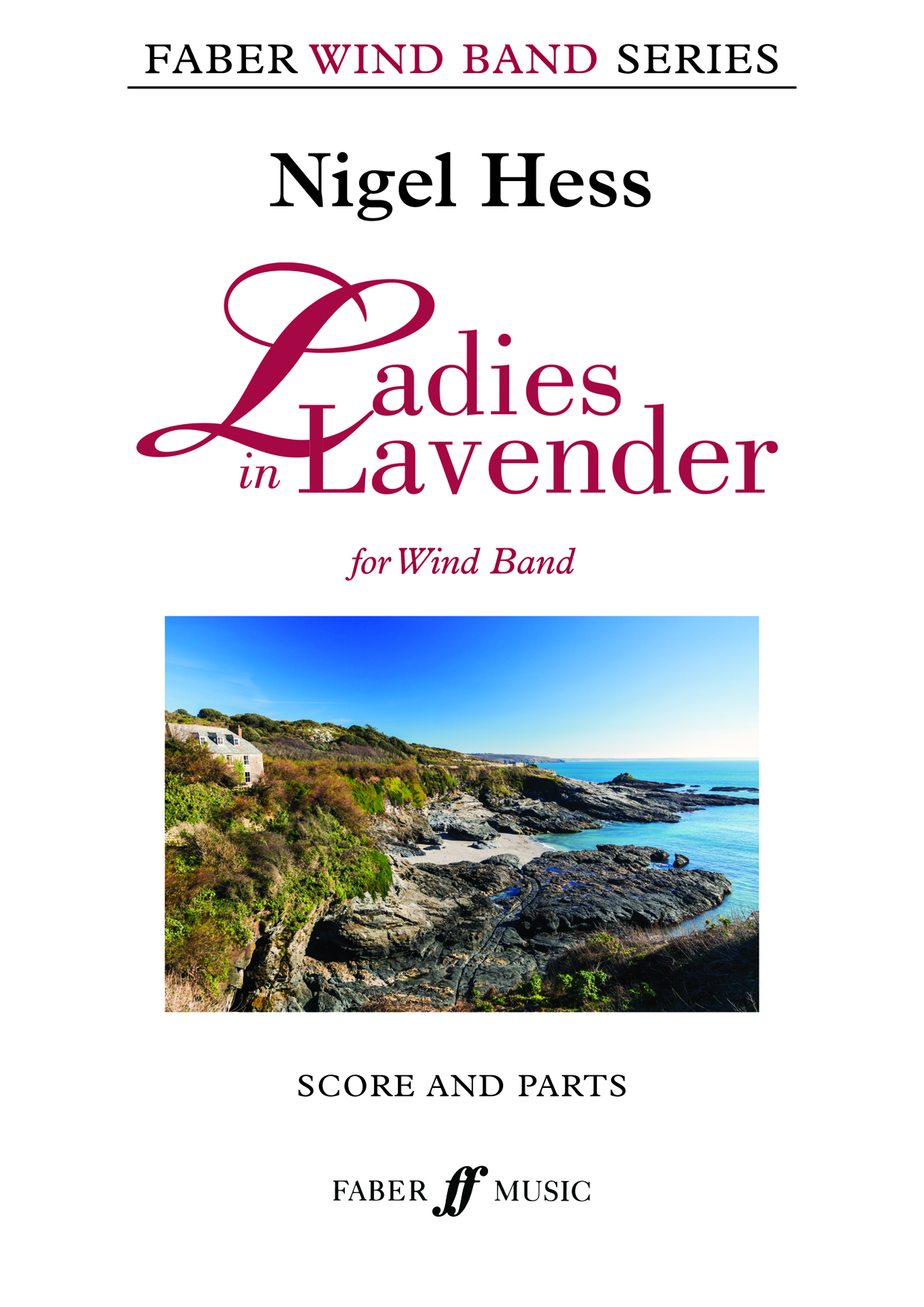Results
-
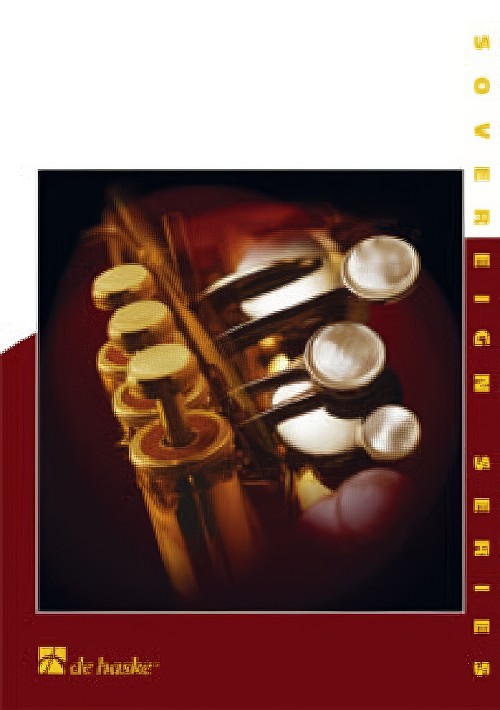 £179.99
£179.99Pastorale Symphonique (Concert Band - Score and Parts) - De Haan, Jacob
Jacob de Haan has composed a very interesting concert work with Pastorale Symphonique. Through music the composer reflects on one of today's most important concerns, the adverse effect on the environment caused by man. The work consists of two main themes; one symbolises unspoiled nature and the second the negative influences of man on nature. A constant interaction between both themes develops into a meaningful final marche funebre.Duration: 10:30
Estimated dispatch 7-14 working days
-
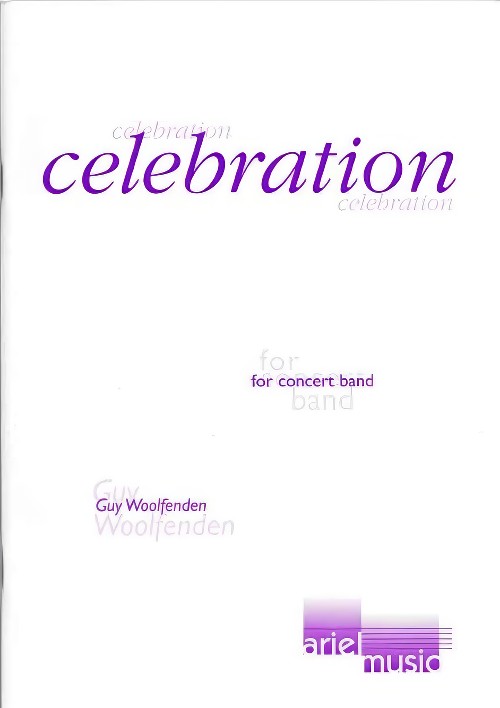 £115.00
£115.00CELEBRATION (Concert Band) - Woolfenden, Guy
Three Movements:RondoValseTristeMarchThis work was commissioned as a celebration of the life and work of Murray Slater, the inspirational musical director of Derbyshire City & County Youth Wind Band, who sadly died in 2000. Murray was greatly loved and respected in the wind and brass band world, was a fine trumpeter and teacher, and was universally known as "Man of Music".Celebration attempts to capture facets of Murray's personality. The Rondo's theme has a witty rhythmic twist to it, the Valse Triste features a solo trumpet, and the concluding March contrasts a Prokofievian theme with a slower "big tune" that attempts to match the stature of the man.The first performance took place on 12th July 2002 in Chesterfield with the Derbyshire City & County Youth Wind Bands, conducted by the composer.Duration 15 minutes
Estimated dispatch 7-14 working days
-
£45.00
Theme from Ladies in Lavender - Nigel Hess
Set in a picturesque coastal Cornwall, in a tight-knit fishing village in the 1930s, Ladies in Lavender starred Judi Dench and Maggie Smith as sisters Ursula and Janet Widdington. A young Polish violinist from Krakow, Andrea, is swept overboard from a ship bound for America. When the sisters discover the handsome stranger on the beach below their house, they nurse him back to health. However, the presence of the musically talented young man disrupts the peaceful lives of both Ursula and Janet, and the community in which they live. This arrangement of the much-loved theme from the film has been arranged for wind band.
In stock: Estimated delivery 1-3 days
-
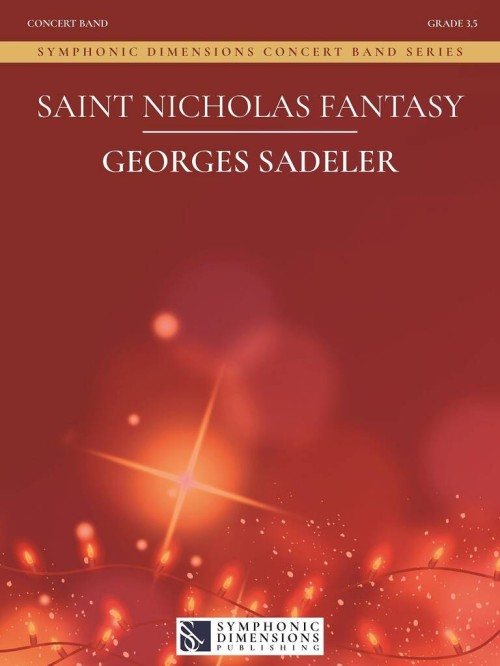 £139.99
£139.99Saint Nicholas Fantasy (Concert Band - Score and Parts) - Sadeler, Georges
Saint Nicholas Fantasy is a medley of traditional Luxembourgish songs about St. Nicholas of Myra, whose story is celebrated on the 6th of December in various European countries. Playfully adapted into different styles such as bossa nova, samba, swing, dixieland or jazz waltz, these songs describe the children's uncontrolled excitement for the presents this holy man brings. The medley includes the songs:Kanner, loosst mer lschteg sinn (Let's be Merry and Bright)Am Uewe potert d'Feier (The Fire Crackles in the Oven)Nach eemol gi mer schlofen (Once More We'll Go to Sleep)Am Dezember, vru Niklosdag (In December, Before St. Nicholas' Day)Ei, ei, ei! Lo ass de Kleeschen hei (Now Father Christmas is Here)Liwe Kleeschen, gudde Kleeschen (Dear Saint Nicholas, Good Saint Nicholas)Duration: 5.15
Estimated dispatch 7-14 working days
-
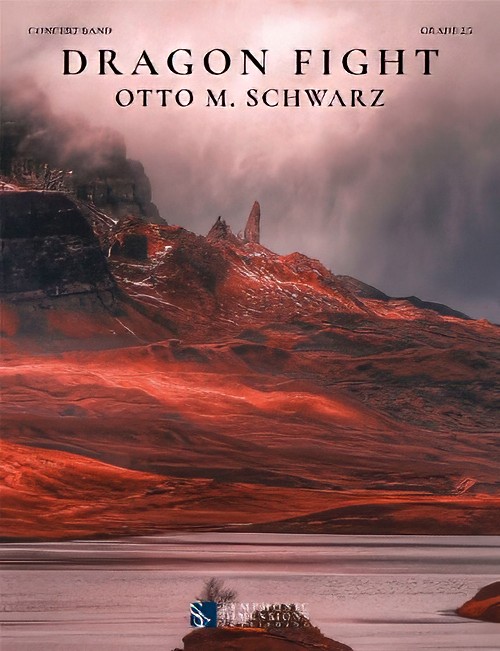 £78.50
£78.50Dragon Fight (Concert Band - Score and Parts) - Schwarz, Otto M.
At the best viewpoint over the Alps of Liechtenstein, the village of Guflina is situated. Underneath the overhanging ledge, there is said to have been a cave in the mountain. In it lived a terrible dragon that was on the rampage on the surrounding meadows, spreading fear and terror among the population. At the same time there lived a giant man up in Guflina, who had the strength of twelve normal men. The farmers implored him to help them in their distress. The giant ventured to fight the dragon and was lying in wait above the cave. When the dragon refused to appear, the giant threw stones into the entrance of the cave. They got into a fight, which the giant only just won with difficulty. Since that day, people have lived in peace and prosperity.Duration: 7.15
Estimated dispatch 7-14 working days
-
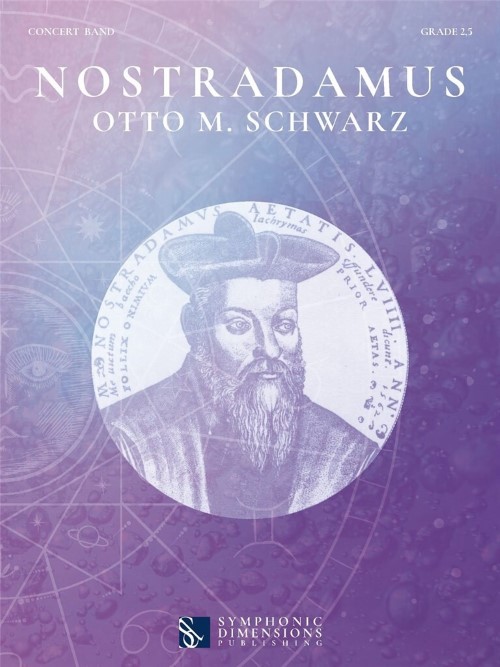 £78.50
£78.50Nostradamus (Concert Band - Score and Parts) - Schwarz, Otto M.
Nostradamus was one of humankind's greatest prophets. Many of his coded prophecies proved true. He lived at the time of the inquisition, and his predictions and medical therapies as a physician made him face consequences from the church. After he had been forced to flee several times and had lost his family to the plague, he devoted himself to clairvoyance. He wrote down many events in history in coded predictions. Although there is probably more than one possible way of interpretation, in our world, Nostradamus is still considered to be a unique personality. Whether he is degraded to a charlatan or turned into a myth, he surely has moved humankind with his prophecies. Otto M. Schwarz, soundtrack composer since 2001, wrote a cinematographic work about this man, who is probably the best-known prophet of the last 1000 years.
Estimated dispatch 7-14 working days
-
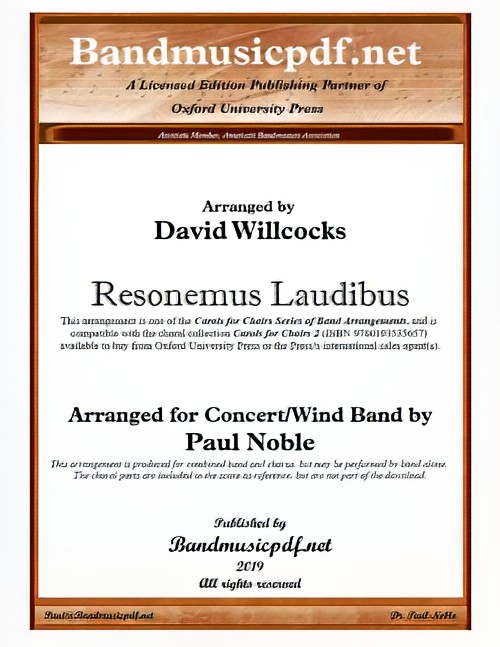 £75.00
£75.00Resonemus Laudibus (Concert Band with Optional Choir - Score and Parts) - Noble & Willcocks
Resonemus Laudibus is a 14th-century carol which was widely known in medieval Europe, and is still performed today. David Willcocks' arrangement brings a modern excitement to the piece, which would not have been out of place all those centuries ago. The Latin text is translated: 1. Resonemus laudibus cum jocunditatibus ecclesiam fidelibus. Let us make the church resound with the joyful praises of the faithful. Apparuit quem genuit Maria He whom Mary bore has appeared. 2. Deus fecit hominem ad suam imaginem et similitudinem. God made man in his own image and likeness. 3. Deus fecit omnia caelum, terram, maria cunctaque nascentia. God made all things, heaven, earth, the seas and all creation. 4. Ergo nostra concio in chordis et organo benedicat Domino. Therefore let our congregation praise God with strings and organ. 5. Et Deo qui venias donat et laetitias nos eidem gratias. And to God, who gives favours and happiness, we give thanks. This arrangement represents one in the Series of Band Arrangements compatible with David Willcocks' Carols for Choirs.
Estimated dispatch 7-14 working days
-
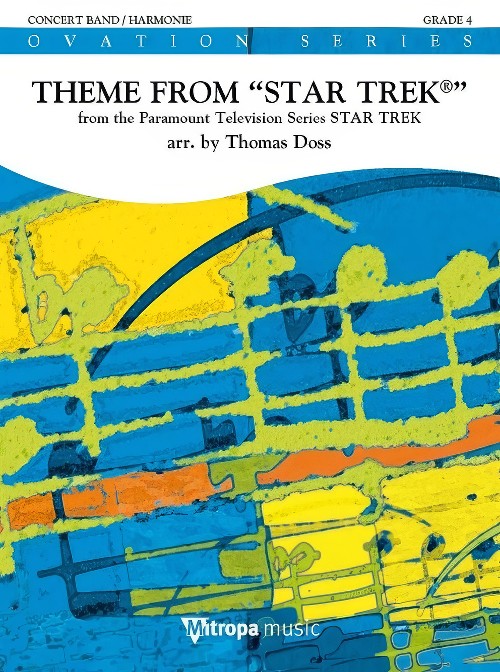 £84.99
£84.99Star Trek, Theme from (Concert Band - Score and Parts) - Courage, Alexander - Doss, Thomas
Who doesn't know the famous introduction "To boldly go where no man has gone before" at the beginning of each Star Trek sequel? Many generations grew up with Star Trek - one of the most iconic Sci-Fi series ever written. The original theme is as iconic as the opening line. A great warm up for the next Star Trek series in 2017, arranged by Thomas Doss. Duration: 3.45
Estimated dispatch 7-14 working days
-
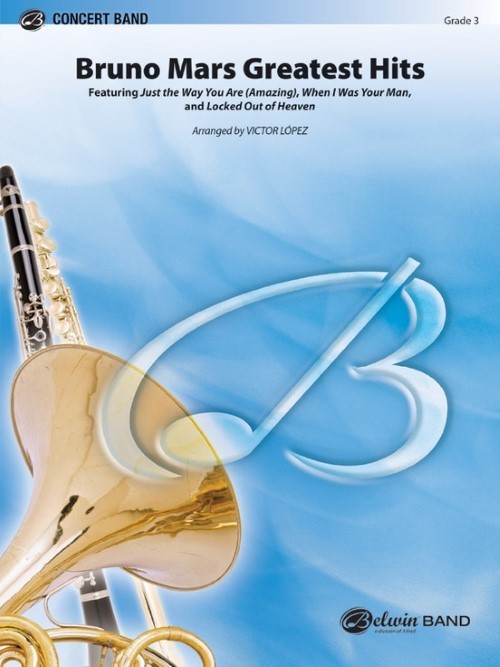 £78.00
£78.00Bruno Mars Greatest Hits (Concert Band - Score and Parts) - Lopez, Victor
Loaded with three Billboard hits, one of which was performed at the Super Bowl, this concert band medley has all the ingredients necessary to engage your students and audience. This concert band medley includes his chart-topper "Just the Way You Are," the rock ballad, "When I Was Your Man," and the upbeat "Locked Out of Heaven." Guaranteed to rock the house!Duration: 5:15
Estimated dispatch 7-14 working days
-
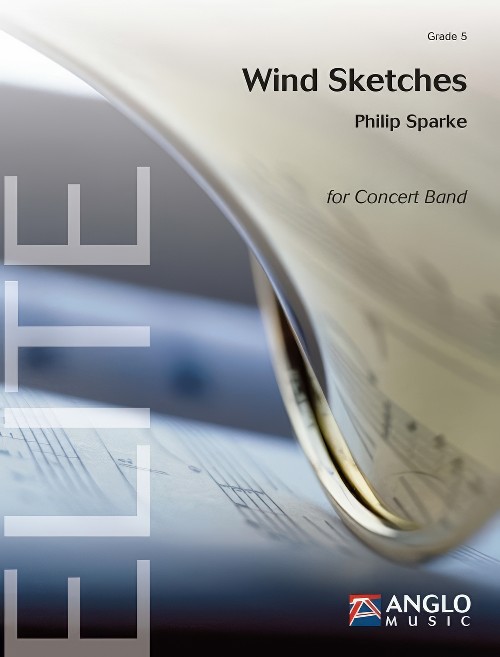 £191.99
£191.99Wind Sketches (Concert Band - Score and Parts) - Sparke, Philip
Wind Sketches is a top quality concert work for wind band in three movements, inspired by the relationship between man and wind. Trade Winds, in the form of a march, is reminiscent of a shanty, conjuring up seafaring and the trade winds. Becalmed, harmonically and melodically almost static, depicts the doldrums. All the more contrasting is Riding the Storm, which concerns the love-hate relationship of people to the winds that he needs and at the same times fears.Duration: 13:30
Estimated dispatch 7-14 working days

